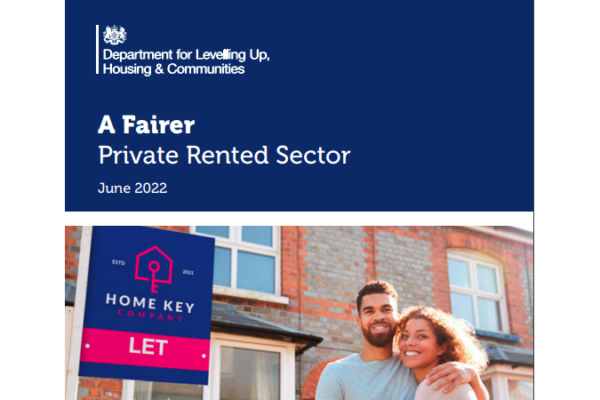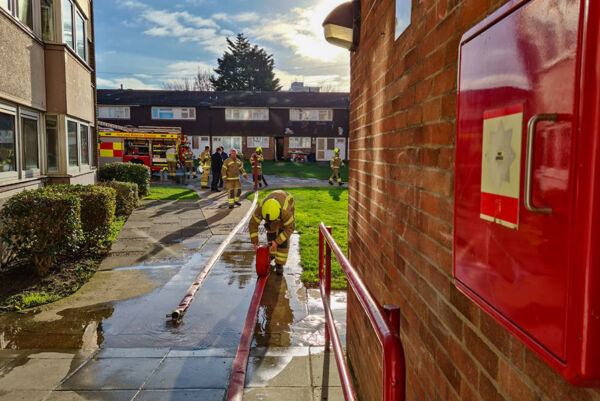Library Archive
Next Event Coming Soon…
We don’t have any events scheduled at the moment. Please check back later for further details.
White Paper – A Fairer Private Rented Sector
On 16th June 2022 DLUHC published a White Paper setting out government policy for the private rented sector (PRS) as part of the wider levelling up agenda. This includes plans for a Renters Reform Bill which will include the following:
• Abolition of Section 21 ‘no-fault’ evictions and introduction of a simpler tenancy structure
• Application of the Decent Homes Standard to the PRS for the first time
• Introduction of a new Property Portal to help landlords understand their obligations
• Introduction of a housing ombudsman covering all PRS landlords
The White Paper sets out a 12-point action plan which includes measures to strengthen local councils’ enforcement powers as well as proposals to make it illegal for landlords to have blanket bans on renting to families with children or those in receipt of benefits.
There will be major reform of tenancy law as all tenants are to be moved onto a system of periodic tenancies, meaning that a tenancy will only end if a tenant ends it or a landlord has a valid reason for obtaining possession, defined in law. There will be a doubling of notice periods for rent increases and tenants will have stronger powers to challenge these.
It will also be easier for tenants to have pets, a right which the landlord must consider and cannot unreasonably refuse.
Presentation Slides – CWAG Finance and Business Planning Workshop – January 2022
Workshop facilitated by Steve Partridge (Savills) covering
- Review of current policy and regulatory landscape
- Implications / challenges within financial policy for housing
- Planning / setting capacity limits for investment
- Current issues in business planning
- Right to Buy
- Funding new development from developer and council/ALMO perspective
Use of receipts from RTB Sales: Government response to the Consultation – March 2021
The consultation on use of receipts from Right to Buy Sales was published alongside the Social Housing Green Paper in August 2018. The consultation considered the case for offering local authorities greater flexibilities in how they use Right to Buy receipts to deliver replacement homes.
Although the consultation closed in October 2018, the government response wasn’t published until March 2021, nearly two and a half years after the consultation closed.
This included the following measures:
- Extension of the timeframe available to local authorities to spend new and existing Right to Buy receipts from 3 years to 5 years, applicable from 1 April 2021. There will also be a change to annual rather than quarterly returns and accounting. These measures will allow councils to plan more effectively and use receipts on larger more complex projects with longer lead in times.
- An increase in the cap on the percentage cost of new homes that councils can fund from Right to Buy receipts from 30% to 40% per home. This aims to make it easier for local authorities to fund replacement homes, particularly those for social rent.
- Allowing receipts to be used for shared ownership and First Homes as well as affordable and social housing for rent.
- The introduction of a cap on the use of Right to Buy receipts for acquisitions. This measure is intended to ensure that RTB receipts are used to deliver new housing supply rather than for the purchase of existing stock or properties built by developers. Councils will still be able to use the first 20 units of delivery each year for existing acquisitions and will not be prevented from acquiring further existing properties above the cap using other resources.
The government also pushed back on other proposals in the consultation, for example, deciding not to make any changes to rules around interest payments on unused receipts. A proposal to allow councils to transfer receipts to ALMOs or other council housing companies to fund development was also rejected.



